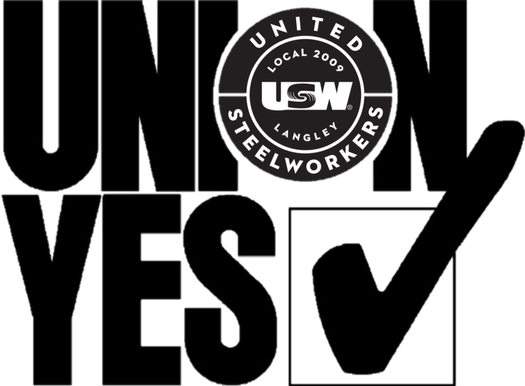DESIBUZZCanada
Events Listings
Dummy Post

International Day Of Yoga To Be Virtually Celebrated Saturday At 4pm

CANCELLED: Coronavirus Fears Kills Surrey’s Vaisakhi Day Parade

ADVERTISE WITH US: DESIBUZZCanada Is The Most Read South Asian Publication Online

SURREY LIBRARIES: Get Technology Help At Surrey Libraries

WALLY OPPAL: Surrey Police Transition Update On Feb. 26

GONE ARE THE DAYS - Feature Documentary Trailer

Technology Help At Surrey Libraries

Birding Walks

Plea Poetry/short Story : Youth Contest

International Folk Dancing Drop-in Sessions
NDP Makes Collective Bargaining More Accessible With Single-Step Certification To Join A Union
- April 7, 2022

NDP is fulfilling its mandate to workers by bringing in changes that make collective bargaining more accessible and which they say will help protect workers who want more say about workplace safety, compensation and benefits. The new single-step certification process will enable workers to join a union when a clear majority of employees indicate they want to, as is the case in jurisdictions such as Quebec, New Brunswick, Prince Edward Island and federally regulated workplaces.
By DESIBUZZCanada Staff
VICTORIA –NDP is fulfilling its mandate to workers by bringing in changes that make collective bargaining more accessible and which they say will help protect workers who want more say about workplace safety, compensation and benefits.
The new single-step certification process will enable workers to join a union when a clear majority of employees indicate they want to, as is the case in jurisdictions such as Quebec, New Brunswick, Prince Edward Island and federally regulated workplaces.
Collective bargaining helps workers obtain better pay and workplace benefits, supporting an inclusive economy that works for everyone.
"Throughout this pandemic, we've seen that many people want to make their workplaces safer, provide more input to their work schedules and negotiate better wages and benefits, and they should be able to this without barriers," said Harry Bains, Minister of Labour. "The current two-step system can lead to interference in organizing. Under the Charter of Rights and Freedoms, workers who wish to collectively organize must not be impeded in any way."

The current two-step system requires a minimum of 45% of workers at a job site to sign membership cards and, once that threshold is reached, workers must then restate their preference for a union through an additional vote - even if a clear majority of workers has already chosen to join the union. It's at this stage, between the certification application and the vote, that interference can often occur.
"Single-step certification is crucial in protecting our right to unionize without employer intimidation. This is a win for all workers, but especially for the essential and front-line workers who have been fighting to be treated and paid fairly throughout this pandemic," said Izzy Adachi, Worker Solidarity Network director-at-large and former union organizer at Starbucks Victoria.
The BC Federation of Labour also welcomed the news that working people in BC will soon have access to single-step union certification.
“Right now, BC is at the back of the pack in Canada, with labour laws that create unnecessary barriers to organizing,” said BCFED President Laird Cronk. “This change will remove those barriers and make it achievable for workers to join together and negotiate fair working conditions in their workplace.”
Instead of BC’s current multi-stage process, the provincial government will return to a system that certifies the workers’ choice to join or form a union when at least 55 per cent of a workplace’s employees sign cards saying they wish to do so.
“This is the recognition of a fundamental right for workers. The federal government, three provinces and the territories all have a similar system, and it’s working well,” Cronk said.
“Making it achievable for workers who want a union to organize will be good for everyone,” BCFED Secretary-Treasurer Sussanne Skidmore added.
“Collective bargaining puts workers and employers on a level playing field, and a collective agreement provides clarity and stability in the workplace. Union collective agreements help to reduce poverty, ensure family- and community-supporting jobs, and deliver stable working conditions.”
Under the new amendments:
* If 55% or more of employees in a workplace indicate their intent to unionize by signing union membership cards, a union will be certified and no further vote is required.
* If between 45% and 55% of employees sign union membership cards, a second step consisting of a secret ballot vote is required for certification.
"The nature of work has changed, with growing wealth inequality and new types of precarious and gig work," Bains said. "Workers want to be valued and they want to have a say. This is about giving workers the choice to speak with a collective voice for fair working conditions."
The amendments to the Labour Relations Code will also affect construction sector unions by allowing workers annual opportunities to switch unions if they are unhappy with their current representation. Current rules can effectively prevent workers from changing unions for three years. The amendments recognize that individual construction projects may only be one or two years in duration, preventing some workers from ever being able to change unions under the current system.
Quick Facts:
* B.C. has alternated several times between the one- and two-step systems.
* The current two-step system has been in place since 2001.
* During 1973-1984 and 1993-2001, when the single-step certification system was in place, B.C. had higher union certification rates.
- The Minister of Labour's November 2020 mandate letter includes a priority to "ensure that every worker has the right to join a union and bargain for fair working conditions."












